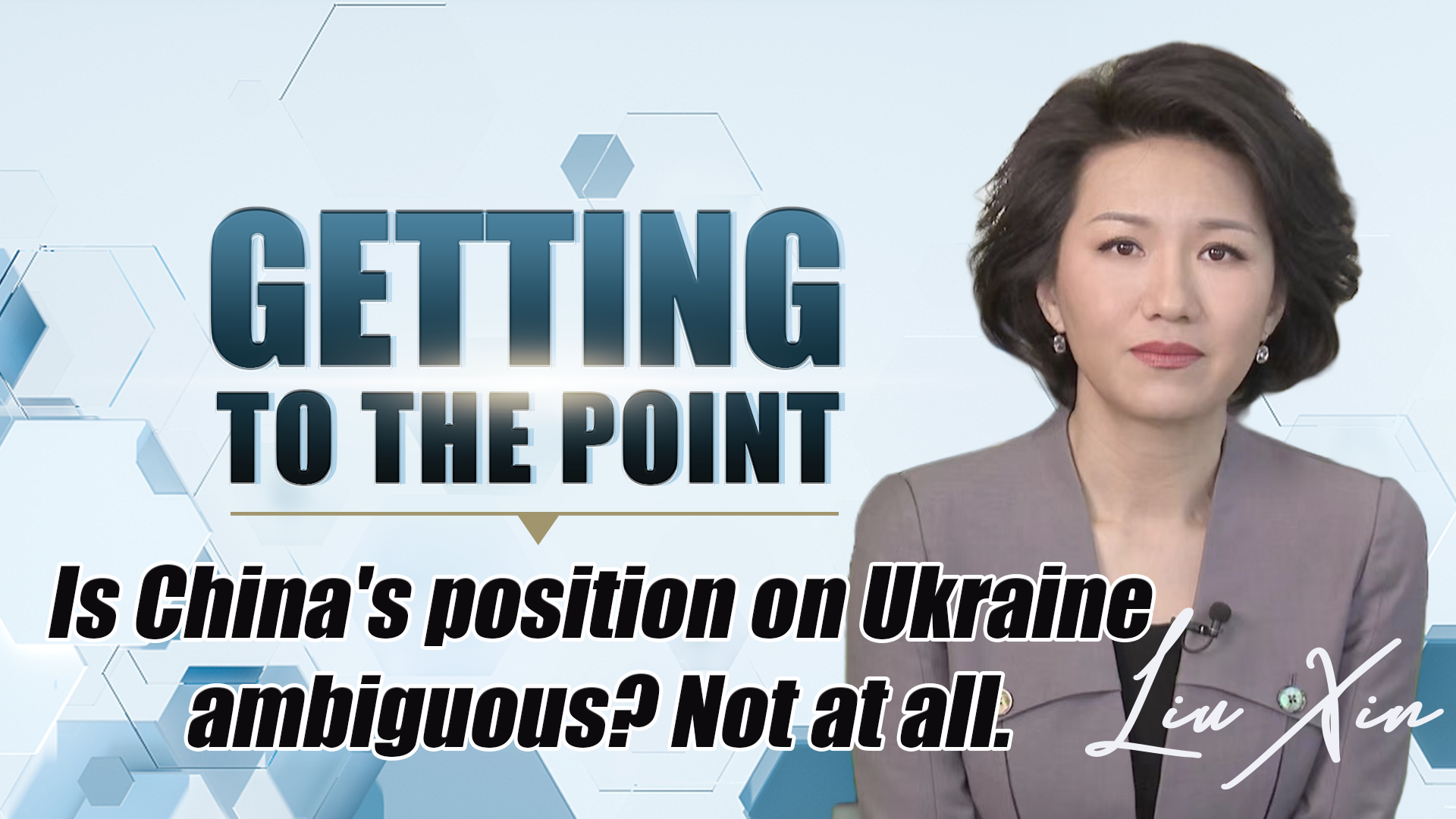06:32

Since the Ukraine conflict broke out, numerous criticisms have been made against China for not condemning Russia, or even for being an "accomplice". Some question the integrity of China's stance, despite Ukrainian Foreign Minister Dmytro Kuleba calling the Chinese role "constructive" during a recent phone call with Chinese State Councilor and Foreign Minister Wang Yi.
What is the Chinese position?
On February 23, after Russia announced its decision on two regions in eastern Ukraine, China's Permanent Representative to the United Nations Zhang Jun remarked at a UN General Assembly meeting: "China's position on safeguarding the sovereignty and territorial integrity of all states has been consistent. The purposes and principles of the UN Charter should be jointly upheld. "
In his original Chinese text, these two sentences are actually one, linked by a comma. That means the two aspects should be taken as whole.
How to understand the message?
Well, history gives a clue. In the midst of the Ukraine crisis, China remembered a historic day: February 27, 1972, when a joint document was signed during U.S. President Richard Nixon's ice-breaking visit to China, the first by a U.S. President. The document, known as the Shanghai Communiqué, paved the way for normalization of bilateral ties.
What was the magic?
For the first time, the two sides agreed on common principles despite "essential differences", that countries "should conduct their relations on the principles of respect for the sovereignty and territorial integrity of all states, non-aggression against other states, non-interference in the internal affairs of other states, equality and mutual benefit, and peaceful coexistence".
These are the Five Principles of Peaceful Coexistence, officially initiated by China, India, and Myanmar in June 1954.
Empty sounding to some, these words have been guiding China's foreign policy and are enshrined in China's Constitution. This open and inclusive concept has also been incorporated into UN declarations, and widely regarded as basic norms of international relations.
In a 2014 speech, Chinese President Xi Jinping noted that the five principles are "integrated, interconnected and indivisible". That means they have to be taken as a whole, with peaceful coexistence as the ultimate goal. Last April, Chinese President Xi reaffirmed the status of this concept as the basis of China's diplomacy.
How does that concept, then, guide China's position on the Ukraine issue?
A quick look at history reveals how the conflict has been a slow-motion train wreck for years. Despite pledges by Western leaders, the eastward expansion of U.S.-led NATO and the positioning of potentially offensive weaponry closer to Russia's borders have been perceived by Russia as existential threats. Senior U.S. diplomats including George Kennan and Henry Kissinger had warned against the dangerous consequences. But people didn't listen. Meanwhile, Russia's behavior is also increasingly perceived by the West as hostile and irrational, fueled by its suspected weaponization of radioactive material and other tough measures. The level of mutual trust has kept dropping, as has the prospect of peaceful coexistence.
The U.S. may not see the Five Principles as universal, but it did sign up to the UN Charter, albeit following it only at will.
The Charter's ultimate purpose is "to maintain peace and security". It opens by opposing the "breach of peace" and calls for "effective collective measures for the prevention and removal of threats to the peace". Have all sides to the Ukrainian dispute upheld the Charter at all times?
Although the conflict has escalated, China has not deviated from its initial position, which turns out to be similar to that of many other developing countries.
On March 2, the UN General Assembly voted on a resolution to deplore "in the strongest terms the aggression by Russian Federation against Ukraine".
Yes, 141 countries voted for this resolution, which sends a strong message. Yet 35 countries, including China, abstained, and five more voted against. Those 40 countries, mostly from Asia, Africa and Latin America, make up over half the world's population.
The West's condemnation of Moscow is not universal, despite such assertions.
It was another coincidence that March 5 was the 124th birth anniversary of Chinese Premier Zhou Enlai, the first Chinese leader to shake hands with Nixon upon his arrival in China. Premier Zhou was also the Chinese face behind the concept of peaceful coexistence.
As the conflict in Ukraine threatens to spiral out of control, his sage words and diplomatic style are more relevant today than ever before.
The principles were born in Asia, where traditional wisdom highlights tolerance and harmony. But they are not exclusively Asian values. Africa, for instance, has the shining example of Nelson Mandela.
The famous philosopher Bertrand Russell once said: "In this world, which is getting more and more closely interconnected, we have to learn to tolerate each other. If we are to live together and not die together, we must learn a kind of charity and a kind of tolerance, which is absolutely vital to the continuation of human life on this planet."
On the Ukraine issue, China's position is and will continue to be pro-peace, peace that's lasting and inclusive.
That's the only way.

